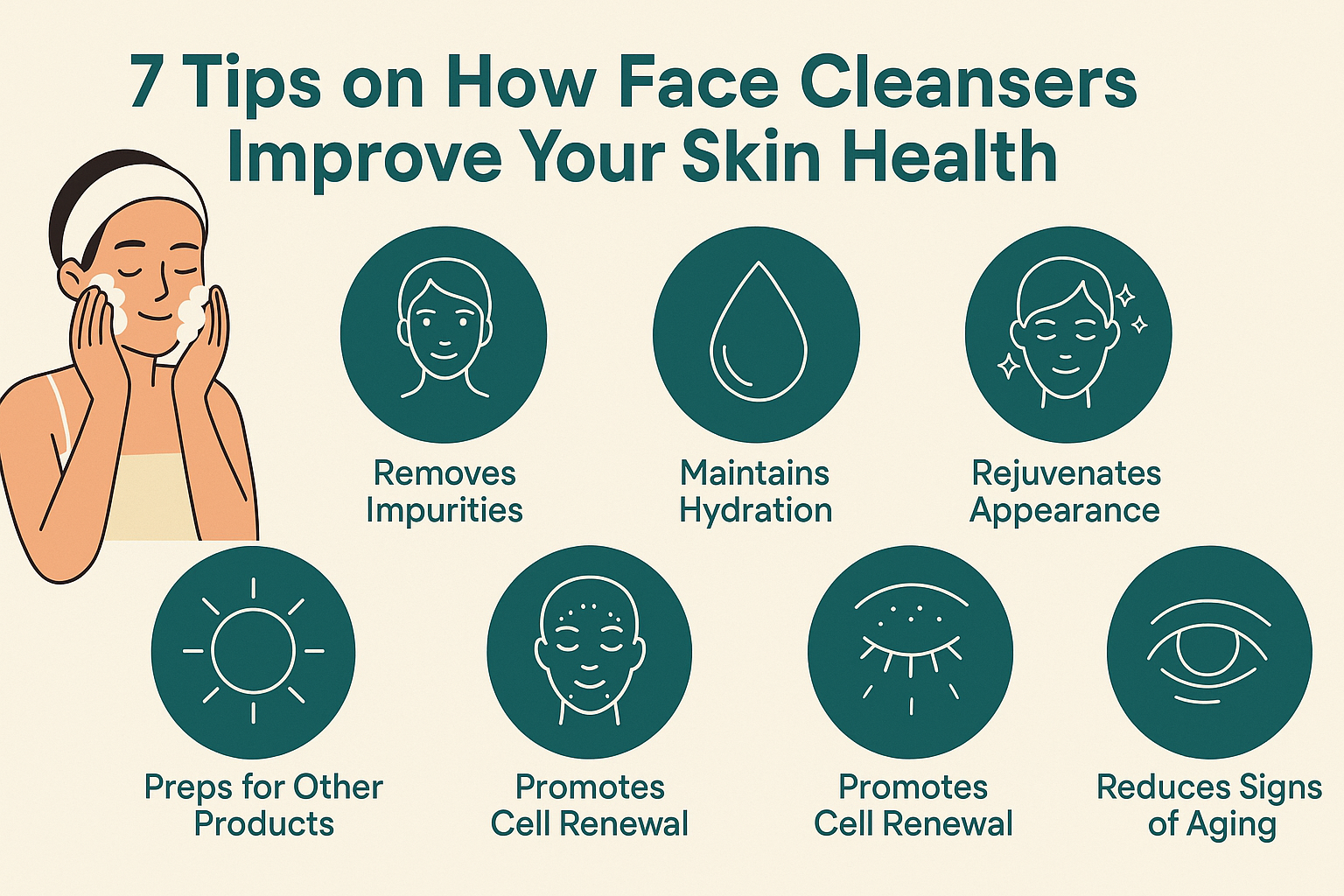
Taking care of your skin starts with the basics, and one of the important steps in any skincare routine is cleansing. Face cleansers maintain your skin’s health and are ready to absorb other treatments. If you want to get the best results from your skincare regimen, understanding how face cleansers can improve your skin health. This article provides seven tips to help you make the most of your cleansing routine.
Always remember that if you have oily skin, choosing a cleanser that controls excess oil without stripping your skin’s natural moisture is key. For dry skin, a hydrating cleanser that nourishes and soothes is ideal. Sensitive skin requires gentle, fragrance-free cleansers that avoid irritation. Furthermore, by matching the cleanser to your skin’s unique needs, you create a solid foundation for better skin health.
Cleaning your face twice a day, once in the morning and once at night, helps remove dirt or pollutants that accumulate on your skin. Morning cleansing prepares your skin for the day, clearing away oils produced overnight, while evening cleansing removes makeup and impurities from the day’s exposure. Keeping your skin clean without overdoing it maintains its natural balance and prevents clogged pores.
Face Cleansers usually contain ingredients that can disrupt the skin’s protective barrier if used too aggressively. Using ingredients like sulfates lead to irritation or increased sensitivity. Instead, choose cleansers formulated with mild surfactants and soothing ingredients like aloe vera or glycerin. Protecting your skin barrier ensures it stays strong, resilient, and better able to fight off environmental stressors.
The temperature of the water you use when cleansing your face plays a surprising role in skin health. Hot water might feel relaxing, but it can strip away natural oils, causing dryness and irritation. On the other hand, cold water may not effectively remove oils and dirt. Keep in mind that using lukewarm water strikes the perfect balance, gently loosening impurities without disrupting the skin’s moisture.
Washing your face more than twice daily or using a cleanser that is too harsh can remove essential oils and disrupt the natural moisture barrier. As a result, it will have dryness, flakiness, or an overproduction of oil as your skin tries to compensate. That’s why sticking to a gentle routine with the right frequency, you allow your skin to maintain its natural harmony, supporting a healthy, glowing complexion.
Cleansing isn’t just about removing dirt, it also prepares your skin to absorb serums, moisturizers, and treatments effectively. When your skin is clean and free of blockages, active ingredients can penetrate deeper and work more efficiently. This means that the benefits of your other skincare products get maximized. Taking time to cleanse thoroughly sets the stage for the rest of your routine to shine.
Your skin naturally maintains a slightly acidic pH, usually around 5.5, which helps protect against harmful bacteria and environmental damage. Many conventional cleansers disrupt this balance by being too alkaline, which can weaken the skin’s defenses. Opting for pH-balanced cleansers helps keep this delicate environment stable, supporting the skin’s natural ability to stay healthy and less prone to breakouts.
By paying attention to these seven tips, cleansing becomes more than just a step in your routine, it turns into a powerful tool for improving your skin health. On top of that. selecting the right products, using proper techniques, and maintaining consistency can transform how your skin looks and feels. Keep these pointers in mind to create a cleansing habit that supports radiant, healthy skin every day.